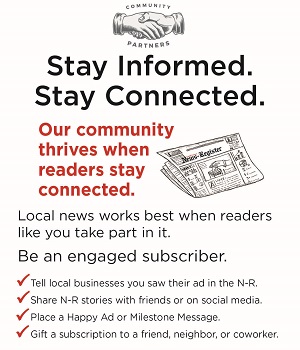Leland Thoburn: The case against psilocybin therapy
About 30 years ago, American Heritage magazine ran a feature piece showing that nearly every recreational drug scouring our culture had been developed, introduced or promoted by the medical/pharmaceutical complex.
Cocaine, mescaline and heroin had all been pushed in their day. LSD was one of the more recent gifts of the pharmaceutical labs, as were PCP, known on the street as angel dust, and psilocybin, recently legalized in Oregon for medical use.
As we have witnessed since, the motives for pushing these drugs are not always pure. The exposure of “Pharma Bro” Martin Shkreli and the Sackler family of Purdue Pharma has peeled back the false veneer of scientific benevolence, revealing a world driven by greed and insensitivity as rapacious as that of a street pusher.
Psychoactive drugs are the most dangerous. They interfere with the chain of chemical and biological reactions that affect our thoughts, emotions and perceptions, sometimes with disastrous results.
I recall seeing a statement of a former anti-depressant user who said achieving withdrawal from the drug was the hardest thing he’d ever done, that his brain felt like it was on fire.
Sometimes, psychoactive drugs trigger the very activity that they were meant to suppress. A 2015 study (www.ox.ac.uk/news/2015-09-15-study-explores-association-between-ssri-use-and-violent-crime) found an association between this class of drugs and an increase in violent crime among youths 15 to 24, the age range of many of our school shooters.
Psilocybin is in this class of drugs.
Although people have been consuming “magic mushrooms” for a psilocybin high for millennia, it was not until 1959 that a technique for isolating and extracting the drug was discovered by Sandoz, a Swiss pharmaceutical company. Psilocybin then joined LSD as a primary offering in the new psychedelic psychotherapy field, until being outlawed later in the decade.
As with heroin and cocaine earlier, and methadone and PCP later, risks were downplayed under the smirk of “better living through chemistry.” But with the passage of time, risks have been observed.
Studies in the United Kingdom have found that 25% of psilocybin users experience panic attacks.
Studies have also documented instances of violent behavior, suicidal thoughts, schizophrenia-like psychosis and convulsions. And users have also reported experiencing paranoia, confusion, disconnection from reality and mania.
Usage by those with schizophrenia has been known to induce acute psychotic states requiring hospitalization. The references for all of these reports can be found on the Wikipedia page for psilocybin (en.wikipedia.org/wiki/Psilocybin).
Further, as we all know, drugs that come in through the front door for medicinal use often escape out the back door for recreational use — in an impure, unmonitored, uncontrolled and thus potentially deadly form.
Yamhill County Commissioner Casey Kulla wrote a piece in this space last week headlined, “Psilocybin therapy deserves a chance.”
Well, it has had that chance. The risks and benefits are now known, and they are not good.
How much easier would our lives be if we had just said “no” to heroin, cocaine, LSD, PCP, methadone and other toxins of their ilk when they were first offered to us.
That is water under the bridge now, but we can say “no” going forward. If we really value a county free from the random and dangerous effects of hallucinogenic drugs, we need to take a stand.
Leland Thoburn is a business consultant and writer who lives in McMinnville’s West Hills district.












Comments